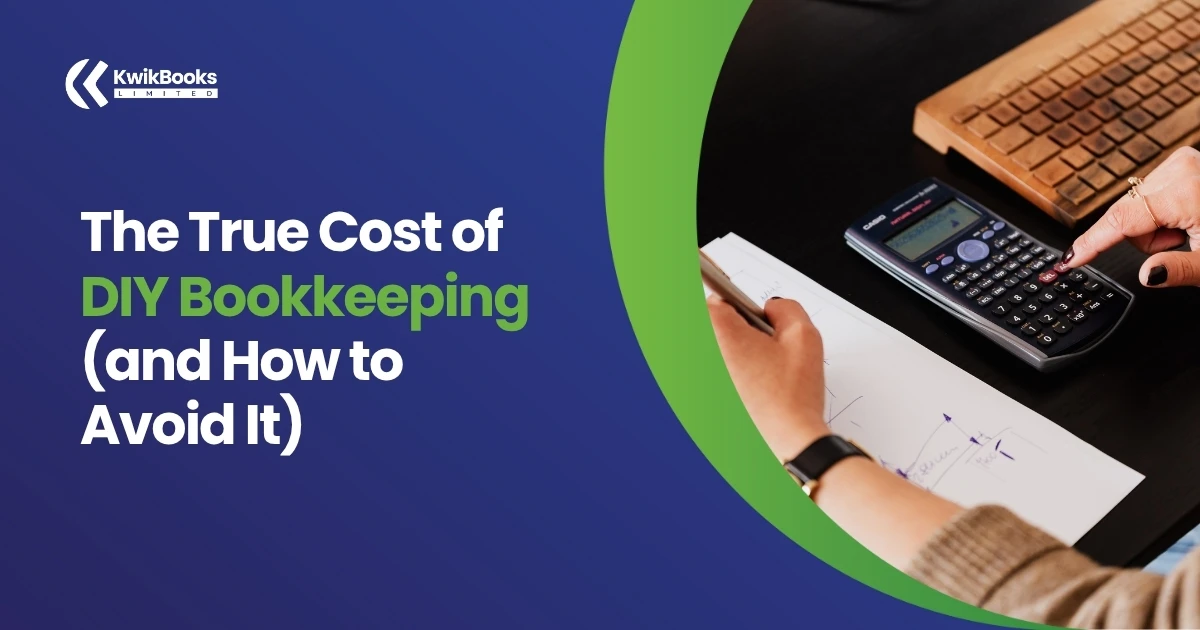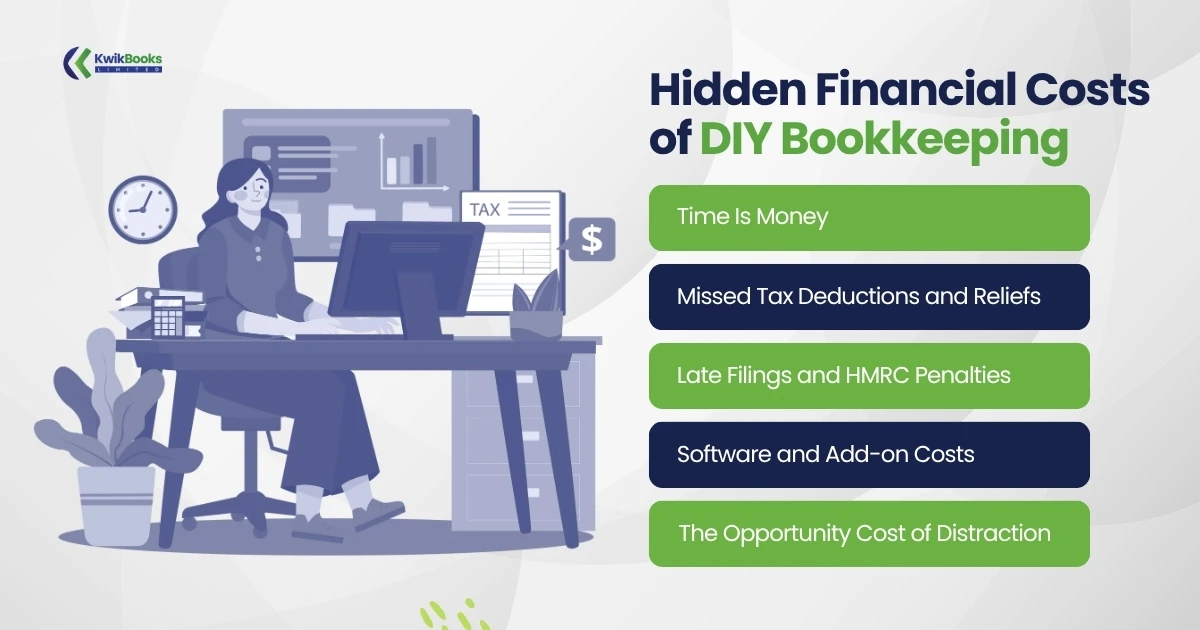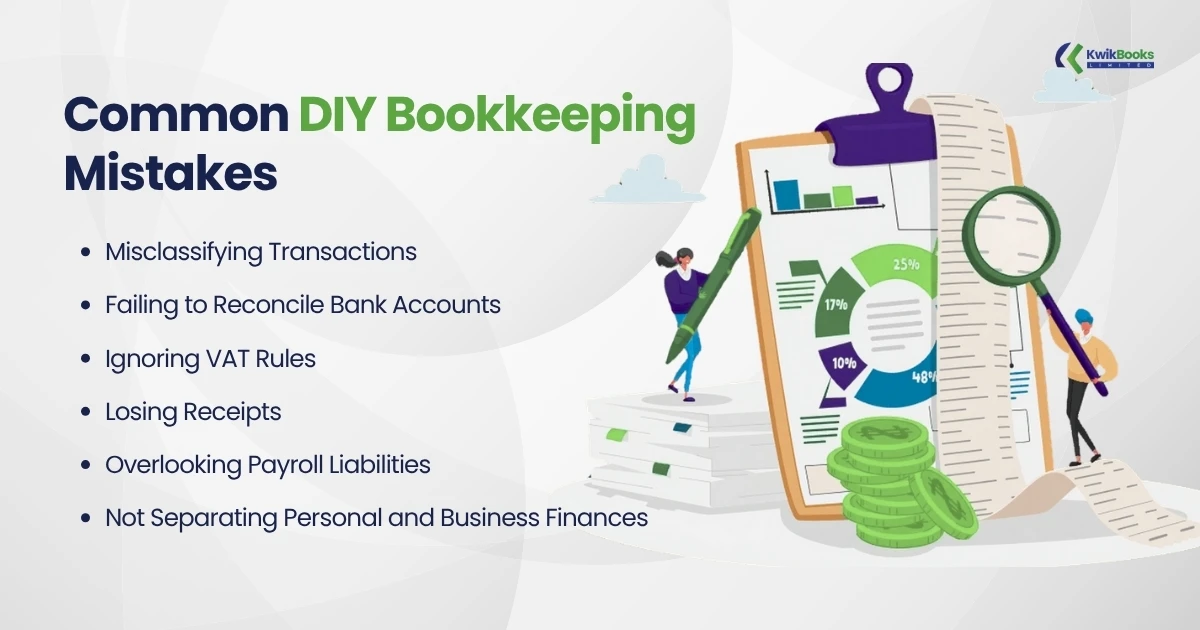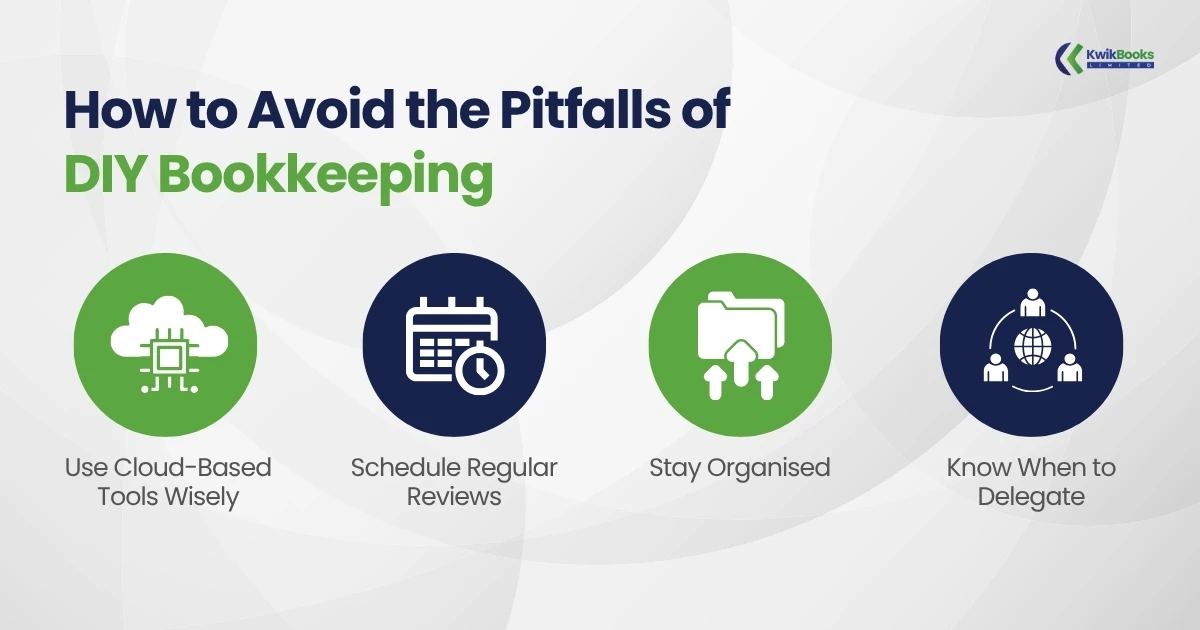
For many small business owners across the United Kingdom, handling bookkeeping on their own feels like a smart financial move. With easy-to-use cloud tools and endless online tutorials, managing the books seems simple enough at least at first.
But as transactions grow, regulations tighten, and tax deadlines approach, those “savings” can quickly turn into lost hours, penalties, and missed opportunities. What begins as a cost-saving measure often leads to greater expenses down the road both financially and emotionally.
This article uncovers the true cost of DIY bookkeeping, explores the most common pitfalls, and shows how partnering with professional bookkeepers like KwikBooks can save your business from unnecessary headaches.
Every entrepreneur starts with optimism. Why spend money on bookkeeping when you can handle it yourself? The logic seems sound:
However, what most business owners overlook is that bookkeeping isn’t just data entry; it’s about maintaining compliance, ensuring accuracy, and making strategic financial decisions. Without the right expertise, the DIY route can cost more than hiring a professional bookkeeper.

Let’s break down the real, often unseen, costs of trying to manage your books yourself.
Every hour you spend reconciling accounts or chasing receipts is an hour lost from growing your business. According to small business productivity data in the UK, owners spend up to 20% of their working week on administrative tasks much of bookkeeping.
If you value your time at £30 per hour and spend 10 hours a week managing books, that’s £1,200 a month in opportunity to cost far more than most bookkeeping packages cost.
Tax laws are complex, and without up-to-date knowledge, you may miss out on legitimate deductions or business reliefs. A professional bookkeeper ensures that every eligible expense, from mileage to capital purchases, is accurately recorded, potentially saving thousands in tax payments.
The UK’s tax deadlines for VAT, PAYE, and Self-Assessment are unforgiving. Late or incorrect submissions can result in hefty penalties and interest charges. DIY bookkeeping often leads to missed deadlines due to disorganisation or errors.
Bookkeeping tools like Xero or QuickBooks are excellent, but not free. Add the cost of bank feed integrations, payroll modules, and cloud storage, and you’re easily spending £60–£100 per month, excluding your time.
When you’re focused on balancing the books instead of driving sales, managing staff, or innovating, you lose growth potential. Delegating bookkeeping allows you to focus on what really matters: running your business efficiently.
Bookkeeping isn’t just a numbers game; it’s emotionally draining when you’re juggling multiple roles.
In short, DIY bookkeeping might keep your costs low on paper but high in every other sense.

Even the most diligent business owner can make costly mistakes without formal training. Here are the most common ones:
These small oversights accumulate into big problems especially during audits or financing reviews.
Here’s a clear look at how DIY bookkeeping stacks up against hiring experts:
Aspect | DIY Bookkeeping | Professional Bookkeeping (KwikBooks) |
Time Spent | 8–15 hours per week | 0 hours – fully managed by experts |
Accuracy | Prone to human error | 99%+ accuracy through automation & review |
Compliance | Risk of HMRC penalties | HMRC-compliant, always up-to-date |
Cost Efficiency | Hidden costs & inefficiencies | Fixed monthly cost with real ROI |
Stress Level | High | Minimal |
Financial Insights | Limited to transactions | Full cash-flow reports and growth insights |
When compared side by side, the bookkeeping cost of hiring a professional in the UK is far lower than the cost of lost time, errors, and compliance penalties.
Think of professional bookkeeping not as an expense, but as an investment in your financial stability. Here’s how:
It’s not always obvious when to stop doing the books yourself. Watch out for these red flags:
If one or more of these apply to you, it’s time to let the experts step in.

Even if you’re not ready to fully outsource yet, there are ways to minimise DIY risks:
However, the most effective way to avoid these pitfalls is to trust a dedicated bookkeeping partner who understands UK compliance inside and out.
At KwikBooks, we specialise in providing reliable and affordable bookkeeping and accounting services for businesses across the United Kingdom. Our mission is simple: to give you more time, clarity, and control over your finances without the stress.
Here’s what sets us apart:
When you partner with KwikBooks, you’re not just outsourcing your books, you’re gaining a financial ally committed to your growth.
Ready to make bookkeeping effortless? Get in touch with KwikBooks today and experience accuracy that drives confidence.
While DIY bookkeeping might appear to save money, the hidden costs from lost time and errors to HMRC penalties can far outweigh the perceived benefits.
Hiring a professional bookkeeper is not just about convenience; it’s about building a solid financial foundation for your business. With accurate records, timely filings, and expert insights, you can make better decisions and focus on growth instead of paperwork.
At the end of the day, clarity is priceless, and that’s exactly what KwikBooks delivers.
It might work initially, but as transactions grow, errors and compliance issues increase. A professional bookkeeper ensures your financial records remain accurate and HMRC-ready.
Bookkeeping cost varies depending on business size and complexity. However, most UK businesses spend less than the amount of time they lose managing it themselves.
Yes. Bookkeepers maintain records that help you file taxes correctly, claim deductions, and avoid penalties.
KwikBooks uses cloud-based software like Xero and QuickBooks, ensuring seamless integration, accuracy, and security.

Stay updated with expert bookkeeping tips and insights! Subscribe now to receive updates directly in your inbox for your business.
* We never spam your email
KwikBooks Limited 1 Hadley Court, 223 Ballards Lane, London, N3 1NB,
Monday - Friday 09:30 AM - 05:30 PM
© 2026 All Rights Reserved.